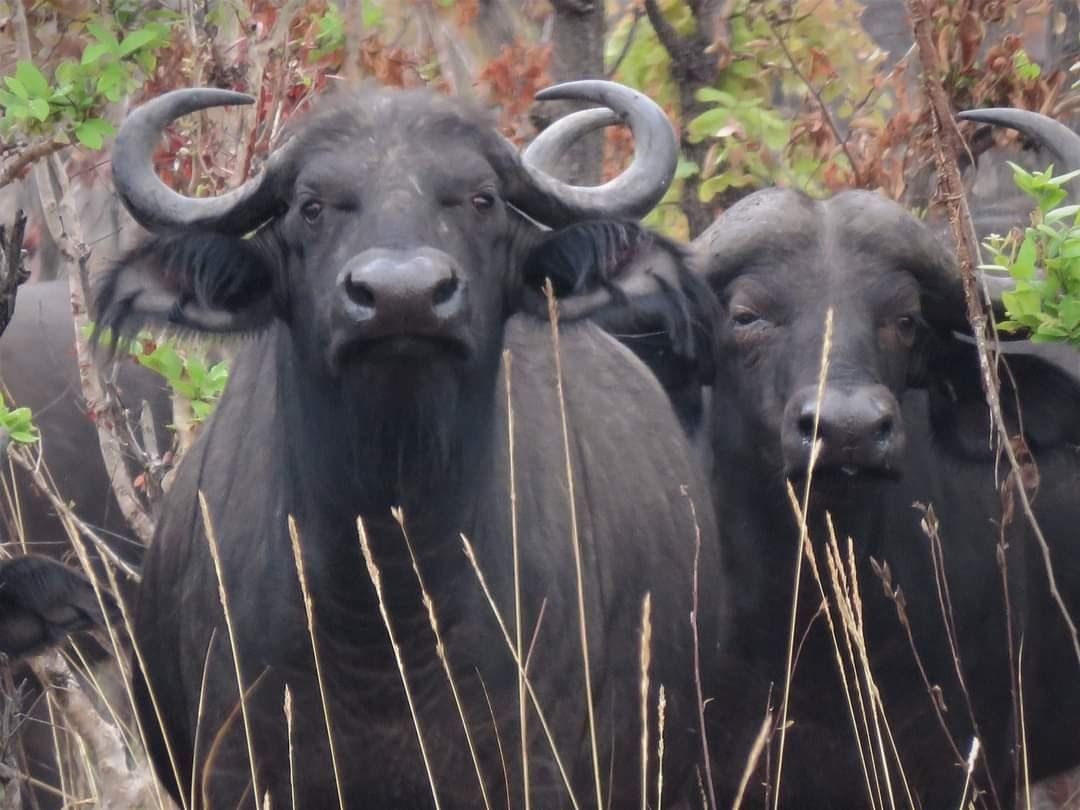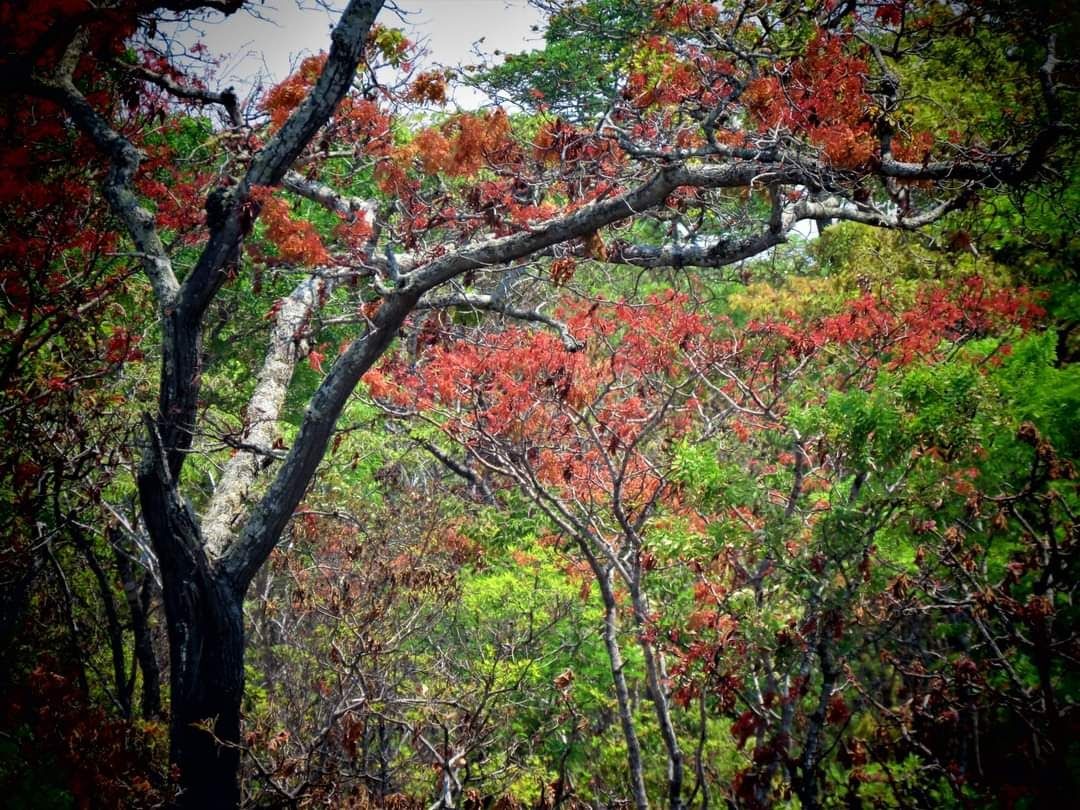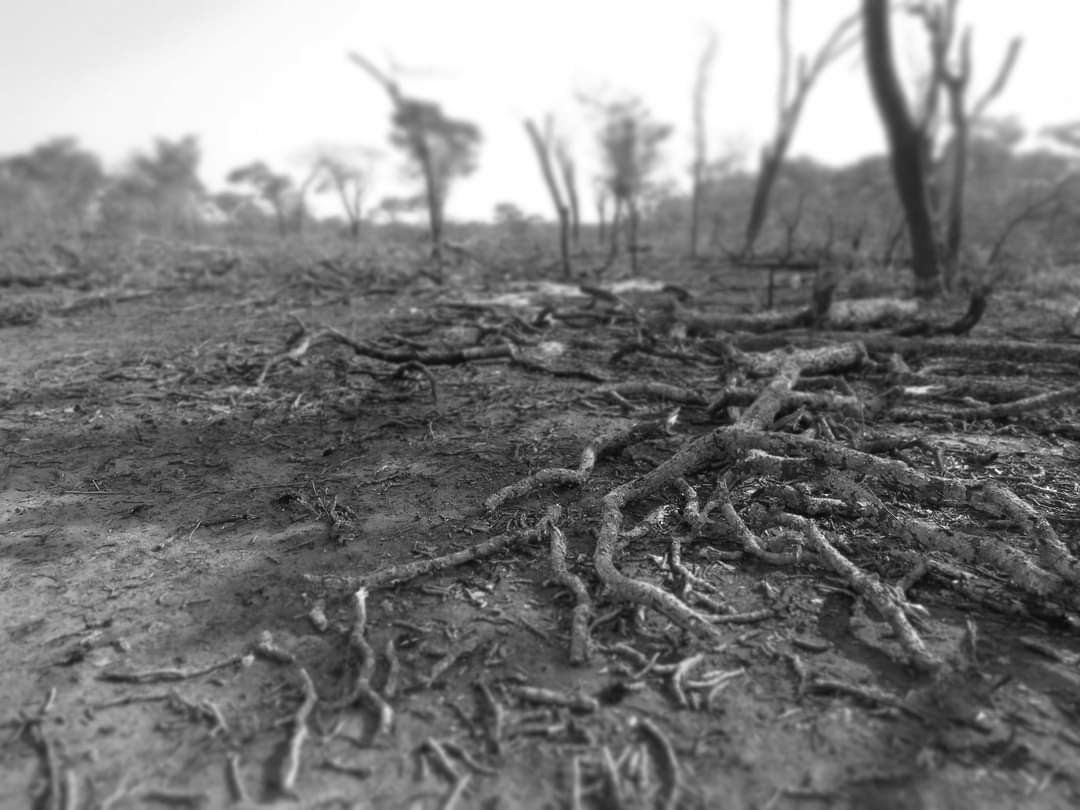Don't Send in the Clowns

As a writer, I recognize the utility of analogies. As a photographer, I am very aware of the importance of focus. But as a conservationist, I am dismayed when people use the former incorrectly in manipulative manners, and the latter at focal lengths fixed no further than their own interests, in misguided attempts to blur, distort and misrepresent reality. Because in conservation, such an approach can and has had multiple degrading effects on not only nature’s future, but on the lives and livelihoods of people who depend upon it as well.
Which is why I now write this response to a September 27, 2022 Wild Things Initiative blog post by Jared Kukura titled – “Why is a trophy hunting outfitter’s photo being shared by a leading sustainable use activist?”
A bit of important introduction is that Jared describes himself on his website as “a wildlife conservation writer and critic of the sustainable use movement “. Strange and contradictory, as sustainable use is a keystone concept imperative to effective conservation.
In his blog, Jared accuses trophy hunting outfitters of practicing fortress conservation. A fortress is defined as a thing not susceptible to outside influence or disturbance. Yet all of the articles and presentations he criticizes (one of which was penned by me) distinctly state that human encroachment on hunting blocks is an increasing problem due to the habitat degradation that inevitably occurs. So much for his claim of impenetrability.
He bases this claim on one aerial photo of a clearly demarcated line between land designated for human settlements vs. land designated for wildlife. But he fails to tell the following, additional, critically important parts of the story. Perhaps because he simply doesn’t know them due to his selective, limited focus. Such photos of national parks not buffered by hunting blocks appear similarly. Photos of lands too rugged to farm or for human habitation also show lines of usage clearly drawn. And in virtually every African country, what used to appear from the air as islands of people surrounded by wildlife habitat is now islands of wildlife habitat surrounded by people, regardless of whether hunting tourism occurs there or not. What he wishes to derogatorily refer to as fortresses, are lands more appropriately described in today’s current conservation crises as strongholds. Wildlands protecting biodiversity that isn’t even fully catalogued yet.
In his selective focus and criticism, he also fails to realize that all boundaries have two sides. Therefore, fortress agriculture, fortress livestock grazing and fortress human settlements should be concepts considered too. Particularly if one’s focus is wildlife, as lands prioritized for these uses in Africa typically are not very tolerant of wildlife, particularly species that damage crops, kill livestock, attack people, transmit diseases, and compete for water and food resources.
Understanding and ultimately addressing any conservation challenges requires knowing how lands are legally designated and utilized. Jared seemingly doesn’t know that in Tanzania the government is the primary owner and controller of the land. Land is to be utilized for each stated purpose and only by those who are legally authorized to do so, via lease and/or occupancy agreements. Criticizing a hunting outfitter for subscribing to these requirements is hypocritical and persecutory unless you are going to claim the same about photo operators in national parks. And question why any human populations should be permitted to illegally utilize land or resources they are not authorized to, as that is what encroachment is. Particularly injurious as it is typically done unsustainably and in a manner of thievery (poaching) not just from the legal operators on the land, but from all citizens of the
country, as Tanzania’s wildlife is government-owned and is viewed as a valuable, renewable natural resource for BOTH the hunting and photo tourism industries to derive livelihoods from. The anti-poaching, anti-
encroachment patrols needed to try to curb these illegal activities are costly, time consuming, and detract from the full conservation and
community benefits these lands could be yielding.

Jared’s fixation on the usage of one aerial photo is interesting. There are indeed plenty of satellite images available that sadly chronicle the very concerning rates of deforestation, land conversion, soil erosion, and water source depletion that is occurring in not just Tanzania, but anywhere that lands prioritized for human needs are being utilized in unregulated and unsustainable ways. Perhaps if he reviewed such imagery, particularly in time-lapse fashion, he would better understand that these problems are real, have far-ranging effects, are occurring
alarmingly rapidly, and are not fairy tales fabricated simply to promote hunting. It doesn’t matter if you’re rich or poor or how many there are of you, if you use land and resources unsustainably, with no concept of conserving for the future, and no recognition that even renewable resources can be severely limited when abused, then ecosystem collapses can and do occur. Sometimes to the point of no return. Everyone who values wildlife – or human life – should condemn such practices.
What aerial photos unfortunately can’t capture directly is the significant ways critics like Jared have contributed to allowing illegal, unsustainable human activities (encroachment and poaching) to overtake lands that were once important wildlife habitat supported financially by legal, sustainable ones (trophy hunting) via their campaigns for trophy import bans or outright hunting bans. People such as rural Tanzanians who do not have a strong conservation mindset due to the ways they could live in the past, when more land and water was available, more moving around was possible, and less people and livestock were competing for resources with wildlife, can, in part, be forgiven or excused for their current lack of foresight and understanding. But people like Jared, on the other hand, who claim to be concerned about conservation, live in parts of the world where many historical mistakes are currently trying to be corrected at great cost and effort, and yet write about or advocate for how they feel
conservation can be accomplished in ignorance or dismissal of reality in other places, cannot be forgiven and are inexcusable. Jared calls for viewing conservation on a global scale, but wildlife is not even valued in a universally global sense. The globe is comprised of countless local problems, priorities and perspectives that absolutely must be addressed for any collective positive impacts to ever truly occur.
Local concerns like the ones faced by rural communities that hunting outfitters in Tanzania, such as Mike Angelides, whom Jared criticizes, are not only required to assist with, but do so voluntarily additionally. Not only Mike and his company, but every outfitter and professional hunter who is a member of the African Professional Hunters Association has been directly involved to varying degrees in funding or building schools, maternity wards, hospitals, medical dispensaries, water and toilet facilities, solar energy installations, and roads for not only rural Tanzanians but also for the government game scouts who help to protect the area’s wildlife resources. They have also all provided training and employment opportunities for rural people, which in turn supports all of their families and economies as well. They have sponsored children to attend school from the primary to the university level, provided meat that contributes to food security, and assisted with funeral expenses and support for families of their staff whose members have been killed or injured in human-wildlife conflict situations or while on duty conducting anti-poaching patrols.
In all honesty, Jared, I know of zero wildlife conservation writers who are critics of the sustainable use movement, such as yourself, who have done any of these things. Perhaps you could start the trend? I doubt it though, as when you were challenged in a blog comment to put your money where your mouth was and to take over a vacant hunting block, you retreated with the typical response of those who doth protest hunting. You said, “I’m willing to bet that simply doing nothing would be a much better alternative to trophy hunting at this point”. I, and many others, would gladly take you up on that bet. Your condoning of unsustainable use guarantees we’d win. And guarantees that the poor people whom you feign concern for would only be further impoverished.
Not only is Mike Angelides strongly affiliated with the Dallas Safari Club, but I am proudly a member as well, and both a literary award winner (as you noted) and photo contest winner. The mission of this group of dedicated individuals is to promote conservation, education, and advocacy for well-regulated hunting and sustainable use of wildlife globally. Goals that Mike and I share and are committed to as well. For over 30 years now, DSC has raised funds for grants that help fund anti- poaching units, minimize human-wildlife conflict, develop better wildlife survey methods, translocate wildlife to establish new populations, provide outdoor education and firearms safety instruction to children, and to pay for deer processing to provide venison meals to the hungry. Just to name a few of the things they do. But, since you are a critic of both the sustainable use movement and the IUCN (whom DSC is a member of), then you, de facto, are a critic of these efforts as well, which is telling as to where your priorities lie.
Also of note and characteristic of the interests you represent, you question why someone would choose a certain photo and what their true intentions may be guided by. Yet in your quest to persecute others you fail at introspection on the same topic. Out of thousands of photos I have ever posted on social media of live animals, you chose one of only several that features me with an animal I have hunted. And, true to anti-hunter form, you didn’t ask permission to do so nor did you credit the professional hunter who took the photo. You accuse Mike Angelides of shooting a photo of a landscape to promote his business, yet you stole a photo of me from another business to promote your business, which is groveling for donations so that you can continue to manipulate people with misinformation. Unacceptable behaviors for any writer with integrity, or anyone genuinely concerned
about conservation.
You question whether I am really a biologist. I have been for over 32 years now, and I have well-developed calluses on my psyche from such constant irritation from unqualified critics like you who attempt to discredit me. And yes, I am also a trophy hunter, a meat hunter, a nature photographer, a conservation writer, a conservationist, a wildlife land owner, a birdwatcher, an activist and advocate for effective conservation programs of any type, an outdoor educator, and a backcountry guide. And, perhaps most importantly, I’m someone who tries desperately to not allow those who are unknowing and unwilling to understand, to destroy what nature we do have with their
ignorance and denial. All of these ways that I describe myself are not mutually exclusive, and are descriptions shared in part or fully by many others who are involved in hunting, professionally or recreationally. They are only considered mutually exclusive by people blindly biased such as yourself.
You scoff at the use of the word study to describe what I wrote about. The basic definition of a study is the devotion of time and attention to acquiring knowledge on a subject. It needn’t be official and published in the scientific literature. But it is a most effective way to gain true understanding of something. You should try it sometime. I’d gladly compose an itinerary and list of costs for you to accompany me in the field in Tanzania sometime on such important endeavors. Firsthand observations are most revealing.
Your blog’s analogies of trophy hunting as fortress conservation and its outfitters as kings reminds me of a much more appropriate, albeit similar themed analogy. That of self-proclaimed conservation writers like yourself who criticize sustainable use as the court jesters. Sources of amusement whose privilege was to be able to talk and mock anyone freely without being punished. They were known as fools, a term derived from the Latin word follis, which means bag of wind. They were comic relief in tense times that might result in tragedy. But pending environmental tragedies such as the continual loss of wildlife habitat and subsequent biodiversity, the persistence of unsustainable human uses, and the time and efforts wasted on combating misinformation such as you peddle cannot be averted or relieved by comedy and foolishness, Jared. Your ignorance would only be laughable if its potential repercussions were not so serious.
The final sentence in your blog implores – “Let’s refocus our concerns”. I will counter with – whenever you are ready to refocus your own concerns, I and everyone else you criticized in this blog, plus our collectively countless colleagues, collaborators, clients, communities and companions will happily provide you with endless suggestions for ways you could truly help rural Tanzanians if you honestly, seriously desired. Actual assistance and addressing of issues that would ultimately benefit nature as well. Your refocusing journey to clarity would start with the simple step of allowing hunting tourism to function as a conservation tool where it works best, doing the same for photo tourism, and seeking ways to enact conservation measures on community lands that are adjacent to both of the aforementioned land uses. Alternatives are not needed. Additions are. The invitation stands, should you genuinely be interested. Until then, blogs, inactions and diversions such as yours only serve to detract from the necessary work at hand that those of us who do understand the need for sustainable use and recognition of reality are professionally, persistently, perpetually and passionately engaged in.


